A NEW BUSINESS IS DESIGNED TO GIVE CUSTOMERS THE CASKETS THEY WANT AT PRICES THEY CAN AFFORD
By Brad Goins
On July 4, longtime Lake Charles resident Kit Kittrell held the soft opening for a new Ryan Street business called Affordable Caskets.
Kittrell tried to start this exact same business in the same city 20 years ago. He started with five caskets that had been made in Mexico that he stored in a climate-controlled room. He ran an ad for the caskets in Thrifty Nickel.
The wrong person must have seen that tiny ad.
“The state shut me down,” says Kittrell, who was informed in no uncertain terms by the Louisiana State Board of Embalmers and Funeral Directors — yes, Louisiana does have just such a board — that any casket bought in Louisiana would have to be bought in a funeral home.
Kittrell went back to his previous profession — truck driving. But he also used much of his time to pursue challenges to the Board of Embalmers and its decision.
“The board is all funeral directors,” says Kittrell. When he, and others, tried to get the Louisiana Legislature to advance a law that would make it legal for individuals to sell caskets in the state, the board was asked why such a thing should be illegal in the first place.
Kittrell says the board offered two reasons. First, said board members, certain mausoleums in a couple of New Orleans graveyards required caskets of a custom-made size. Second — the board argued — if individual people or companies made caskets, they might build them so poorly that the handles would fall off during a funeral procession.
Who would be convinced by such arguments? The Louisiana Legislature was. The bill to make individual manufacture and sale of caskets in Louisiana legal went nowhere.
Kittrell retired from truck driving some time ago. And he’d still be out of business today if it weren’t for some persistent Benedictine monks in Covington, La.
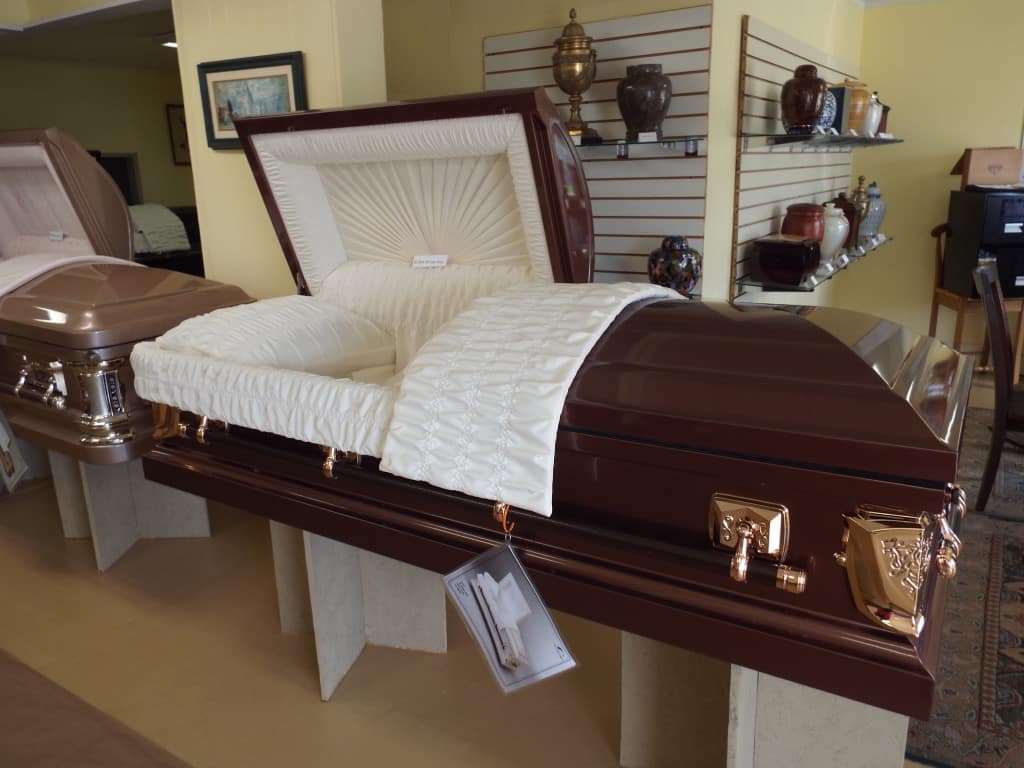
But before even one casket was sold, the monks received the same sort of notice Kittrell did. They were told, in the words of the Institute of Justice, that “it was a crime in Louisiana for anyone but a government-licensed funeral director to sell caskets to the public.”
The Benedictine monks filed suit in federal court, arguing that the rule was arbitrary, served (again in IJ’s words) “no legitimate public purpose” and existed only to ensure that funeral homes maintained a lock on casket sales in Louisiana.
National media had little sympathy for the state’s Board of Embalmers. Here’s a sample of some of the headlines that ran at the time.
“Burying crony capitalism” — The Washington Post
“A Casket Cartel and the Louisiana Way of Death” — The Wall Street Journal
“Coffins Made With Brotherly Love Have Undertakers Throwing Dirt” — The Wall Street Journal
“Challenging Louisiana’s Casket Cartel” — The Times-Picayune.
The final decision in the case was made in 2013 by the 5th U.S. Circuit Court of Appeals, who ruled that “the great deference due state economic regulation does not demand judicial blindness … nor does it require courts to accept nonsensical explanations for regulation.” The U.S. Supreme Court refused to hear the appeal of Louisiana’s Board of Embalmers. Suddenly, it was possible for the Benedictine monks, and anyone who was willing to do his paperwork, to sell caskets to the Louisiana consumer.
‘I Want The Simplest Thing’
Put in the most practical terms, Kittrell’s basic business objective is to save the consumer a thousand dollars or more on a casket.
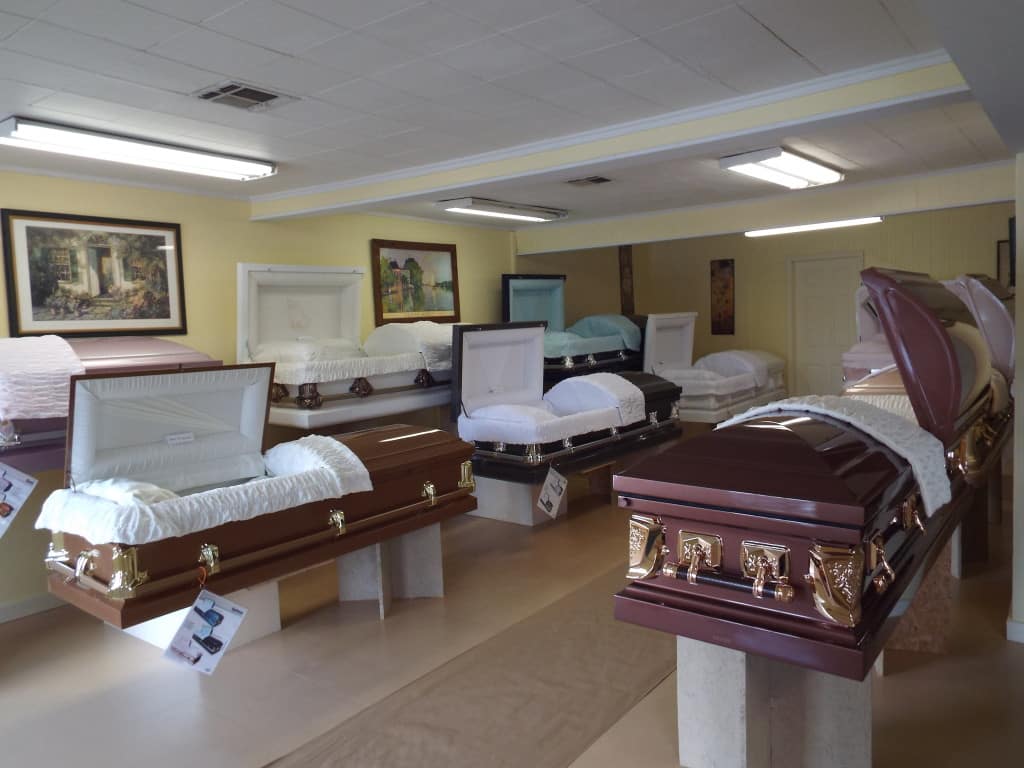
Kittrell is presently working on plans that will enable him to “make plain pine boxes for a few hundred dollars.”
Kittrell says “the people who talk with me for hours” at the table in his shop are the ones who say, “I want the simplest thing. I want no embalming.”
Others, he says, develop an appreciation for simplicity when he tells them about “all the nasty aspects” of typical funeral home care of the deceased, such as the use of wires to keep jaws closed or long-term affects of embalming on the body. He says some people hear these things and react by saying, “That’s not dignified. That’s a travesty.”
He says people who have been through the hospice experience — who have seen their loved ones die in hospice — are especially open to alternatives to the usual funeral home procedures. These people, says Kittrell, have grown accustomed to the topic of death and the natural processes involved with it. They aren’t interested in paying large sums for aesthetic flourishes that will be seen by mourners for a few days at most.
But even caskets that look — to me, anyway — exactly like the ones one sees in funeral home display rooms, can be bought in Kittrell’s shop selling for substantially less than $1,000.
Kittrell is well aware that some consumers seek a casket that “reflects the lifestyle of the [deceased] individual”. He showed me a casket in LSU colors that was priced at $1,095. Although this casket isn’t made with any LSU insignia on it, the colors are right, and Kittrell could have a Tiger added to the interior panel of the lid.
“I’ll try to set up some sort of accommodation” to what the consumer wants, he says. At the time I interviewed him he was searching the internet for options for having a flag placed on the interior panel of the lid of a casket.
Just What Does The Typical Funeral Cost?
Why not just have the funeral home do that sort of thing for you? Well, it might cost a little more.
Kittrell says the typical American couple now spends $8-10 thousand on a wedding. The typical mourner or mourning family spends even more — $10-12 thousand — on a funeral.
Let’s start getting some figures on the table so we can just see why a funeral home funeral costs as much as it does. Here’s a list of set prices charged by one group of funeral homes in the area:
• “Basic services of the funeral director and staff and overhead” — $3,195
• “Preparation of the body” — $1,195
“Other preparation of the body” includes these fees:
• “Dressing and casketing of deceased” — $195
• “Bathing and handing of unembalmed deceased” — $195
• Refrigeration — $295
• Restoration — $100 per hour
The main additional fees include:
• “Use of facilities and staff services for visitation” — $430
• “Use of facilities and staff services for funeral service in our chapel” — $695
• “Use of facilities and staff services for memorial service (without remains present) in our chapel — $695
• “Transportation of remains from place of death to funeral home” — $595
• “Funeral vehicle” (hearse) — $395
• “Forwarding remains to another funeral home” — $3,495
• “Receiving remains from another funeral home” — $2,795.
Caskets range in cost from $795 to $9,595. And the costs of “outer burial containers” ranges from $1,495 to $18,995.
Do the prices seem reasonable? Let’s look at a few in some detail.
How about that big price of $3,195 way up at the top? That’s an up-front fee that must be paid to the funeral home regardless of how much or how little is done to the remains of the deceased. It’s a fee that every customer must pay.
I asked Kittrell for the rationale for a fee of this size. He said the explanation is that the funeral home provides a staff that can be contacted and provide services or information 24 hours a day during the entire process leading up to the burial.
Now, in all fairness, it should be noted that some funerals are arranged by individuals who are so grief-stricken that they don’t feel up to the task of making decisions or taking even simple actions. For such individuals, the option of having a group of people who do everything, no matter how small, may be worth every penny of $3,195.
But there are individuals who can mourn yet still feel that they are perfectly capable of making decisions and undertaking necessary tasks. Such individuals may wonder exactly what they’re getting for their $3,195.
I was absolutely fascinated by the idea of a $295 fee for refrigeration. When I mentioned this to Kittrell, he said, “Isn’t that something?”
I speculated that, at most, refrigeration involves the use of electrical power to run a motor that keeps coolant in a certain temperature range. Why would $295 — or any figure near it — be needed?
Kittrell explained to me that some decades ago, there were funeral homes in the region that refused to give consumers the option of refrigeration. The thinking was that without refrigeration available, emblaming wouldn’t be optional. Eventually, these funeral homes must have decided that if refrigeration absolutely had to be provided to the public, something had to be charged for it.
I feel sure that no amount of thinking will enable me to understand the scale of some of these fees. I don’t suppose I will never understand why it would cost anything close to $595 to transport a dead body that is within 50 miles of a funeral home or $2,795 to receive remains that are coming from any location whatever.
What About Cremation?
If you’ve been going about your business thinking that cremation will be your way of eluding funeral home costs, you way want to recalibrate your thinking a bit.
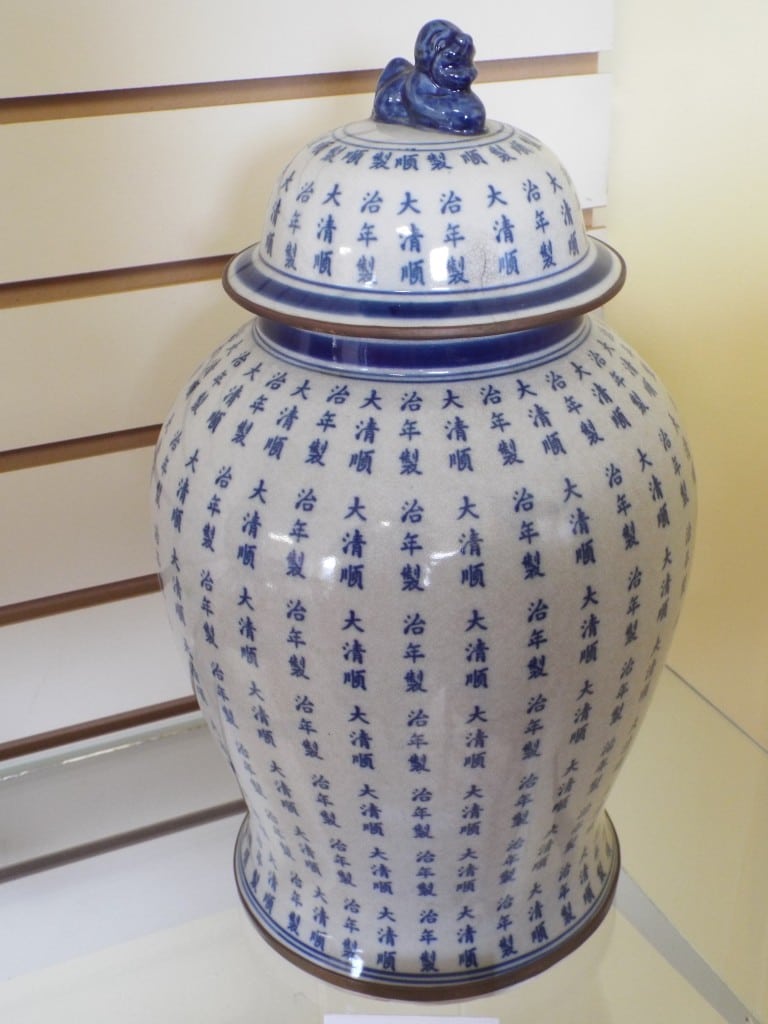
A total cremation package can run as high as $11,540.
Funeral Homes And ‘Cultivated Traditions’
Only a small percentage of the funeral homes’ fees are listed in this story. One can pay for everything from a candle ($15) to a bagpiper ($295).
Some items in the long list of prices do seem more reasonable than others. For instance, the homes offer a service called “immediate burial,” which is a burial “without any rites or ceremonies at the funeral home, graveside or elsewhere.” This service is priced at $2,995. While I wouldn’t say the price is exactly economical, I don’t see it as being far out of line with the service provided.
Reasonable or not, a key factor remains that many who have just lost a spouse are at their worst when it comes to being in a position to make a decision. Their shattered emotional state leaves them highly amenable to suggestion or to those who speak as if they have a clear sense of what decisions are the most appropriate for the situation.
The environment can be arranged to facilitate the process of leading the overwhelmed mourner in particular directions. Kittrell says inexpensive caskets are featured prominently in funeral home showrooms. After all, funeral home directors understand that not everyone has a great deal of money.
But, says Kittrell, the inexpensive caskets often have bland looks; are in unpopular or unattractive colors and have “atrocious hardware.” It’s easy to direct conflicted mourners toward more costly caskets.
Of course, those who are making arrangements for a funeral at the same time they are wracked with grief over the deceased are not in a good position to make reasoned decisions. They may feel that caskets that don’t have a certain appearance are somehow a dishonor to the dead. They may even feel that they are somehow being disrespectful to the dead if they buy caskets that cost appreciably less than other caskets.
As for the funeral home where such decisions are made, mourners may feel they are under a great deal of pressure not just to use a funeral home, but to use a particular funeral home. Some of this pressure comes from what Kittrell calls “cultivated traditions.” Funeral home leaders and representatives may work hard to build the impression that a certain funeral home is routinely used by a particular church or organization or by particular groups or in particular neighborhoods.
Funeral homes that are part of large national chains or a large national company, says Kittrell, “have strict marketing programs” that they’re obliged to follow.
The result is that many consumers spend decades assuming that when they die, their funeral will be handled by a particular funeral home regardless of the cost. It’s not a matter they think over. “They’re locked into a tradition that the funeral industry has carefully crafted since the Civil War,” says Kittrell.
Deciding In The Midst Of Grief
I remember accompanying my mother to the funeral home when my father died in Cleveland, Tenn., in 1990. I felt from the moment I was greeted in the funeral home that I was in the midst of a marketing operation — and one that wasn’t very subtle.
I believe the two men in suits who greeted us told us they were the owners. After assuring us at length that their business and services were very Christian (my mother is a long-time, devout Southern Baptist), they told us that they cared about us and loved us.
Now, since, I think, at least one of them knew either my father or mother, I give them a pass for directing such comments to her. But as they had only just met me, I feel sure that any love they may have felt for me was extremely abstract at best.
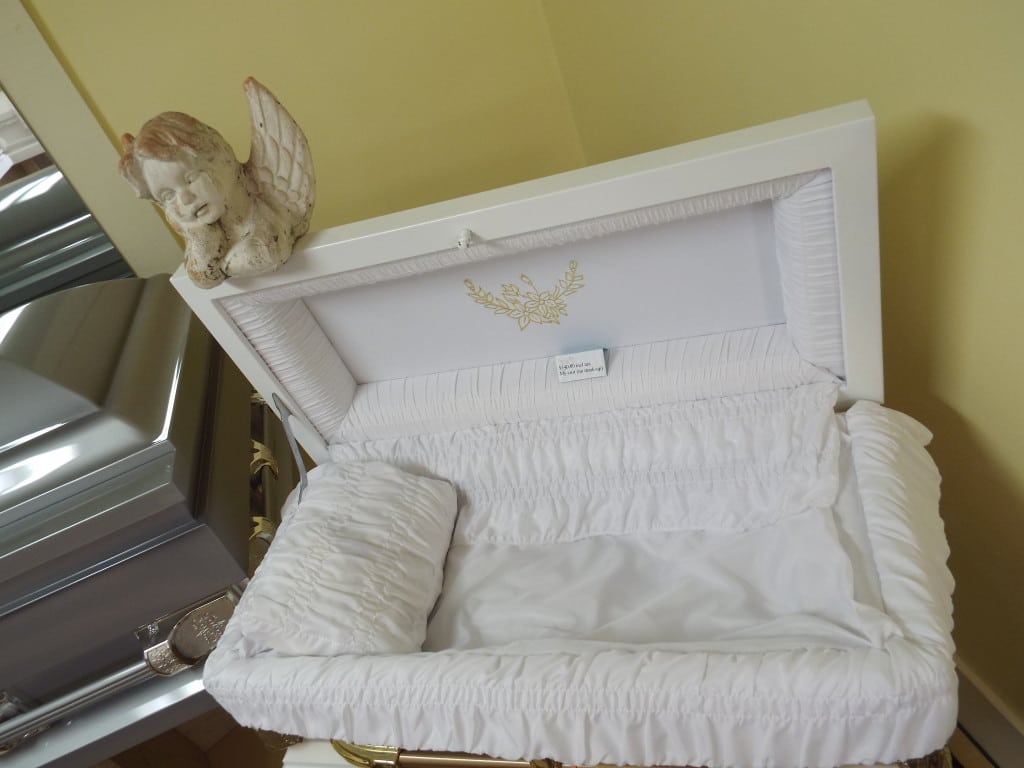
My mother was grief-stricken indeed. But fortunately, we both knew my father well. He valued rural life and wanted nothing more than to be buried next to the small country church he had attended, in the graveyard where all his ancestors lay. He never wanted to be moved. In spite of her grief, my mother chose an inexpensive casket. It was one of the few positive things to come out of the experience.
Mandatory Participation
If you’d like to avoid the whole funeral home system altogether, you might want to be thinking about moving out of Louisiana. In Louisiana, each person who obtains a burial or cremation must do it through a funeral home.
Only 10 of 50 states in the U.S. require that residents obtain part or all of a burial or cremation through a funeral home. In several of the 10, the only requirement is that a death certificate be obtained from a funeral home. Once the death certificate is in hand, the consumer can proceed as he pleases and need never set foot in a funeral home again.
It should be kept in mind that regardless of the laws in individual states, many mourners will want to go the funeral home route regardless. For those who want to do so, but have financial concerns, it’s important to remember that there is a vast difference in the funeral costs of various funeral homes in this area. There are no standard funeral home fees; each funeral home sets its owns fees; and some are far more inexpensive than others.
If money matters, shop around — if necessary, long before the death occurs. If money matters, try to break out of the “cultivated tradition” that one is locked into using one particular funeral home.
Kittrell offers solid practical advice. “Take your time. Don’t spend foolishly. Don’t get guilted into paying [for what is] unnecessary.”
The slogan of his business is “Don’t get buried in debt …”
Green Burials
As an individual who’s advocated for humane and commonsense burial practices for decades, Kittrell is part of the effort to make Louisiana a place that’s friendly to the growing green burial movement.
As an example of green burials, he cites the Memorial Ecosystems project of the Ramsey Creek Reserve in South Carolina.
No one who has been embalmed can be buried in the preserve graveyard. Caskets are made of “simple, biodegradable” materials. There are no vaults; no headstones.
Some choose to mark a grave by planting a tree. Others leave no special mark. The locations of the deceased can always be found by means of a publicly displayed map of the graveyard.
Kittrell says such a burial provides the consumer with “a vast savings” over a funeral home burial. But he concedes, “I haven’t gotten much traction for that” from Louisiana politicians.
He notes a saying of the Funeral Consumers Alliance:
“Home birth, home school, home death, home funeral.”
The Donation Option
Readers may be surprised to learn that there is one certain way to escape the cost of funeral home services. That way is anatomical donation, which in many cases costs nothing.
Louisiana residents can donate their bodies to the Tulane University Health Sciences Center. Bodies are used for anatomical study in general and as a means to “harvest usable organs.” When the body can no longer be used, the remains are cremated by the University and kept in a permanent memorial that can be visited at any time.
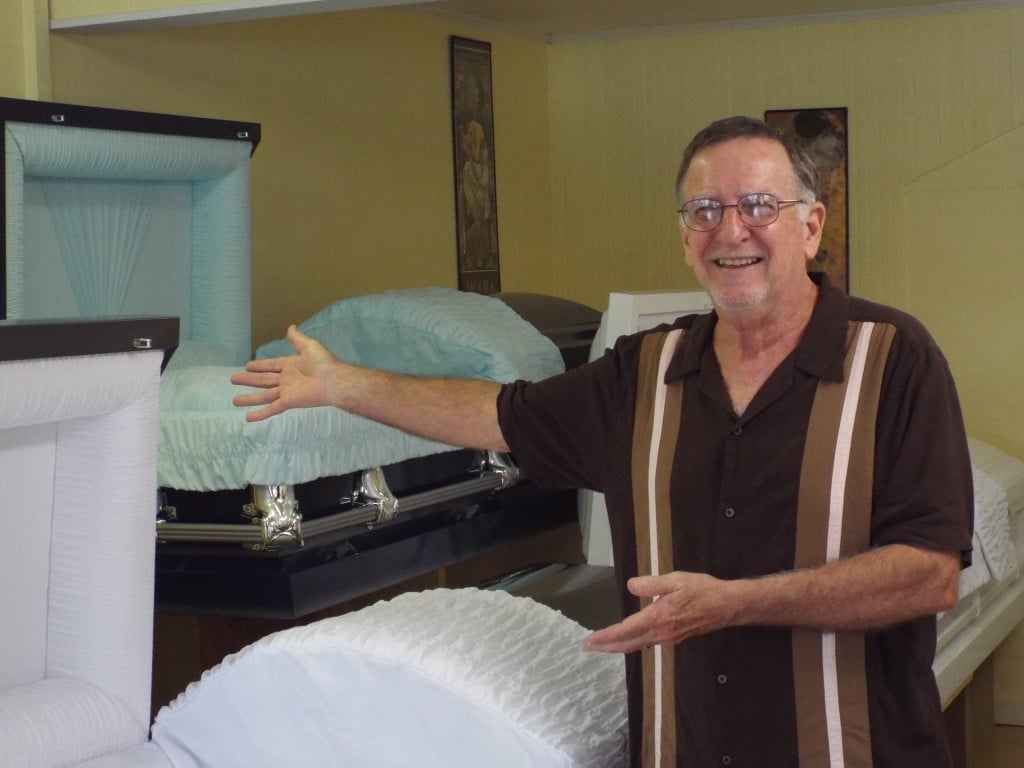
‘Dignified Options’
Kittrell says his new business is “one step toward offering dignified, affordable options.”
He also says, “I can use the facility as a platform to encourage discussion of green burial; green cemeteries” and to continue his efforts to create a chapter of the Funeral Consumers Alliance in this area.
Consumers can find many pamphlets from the Funeral Consumers Alliance in Kittrell’s shop. Titles include:
“No One Wants To Talk About Death. How To Help.”
“A Guide To Funeral Planning. Affordable Options.”
“Earth Burial. A Tradition In Simplicity.”
“Common Funeral Myths.”
“Twelve Reasons Why People Spend ‘Too Much’ for a Funeral.”
“How To Help Grieving People. What You Can Do. What You Can Say.”
‘Simple and Cheap,’ My Father Said.”
You can learn about the Alliance at funerals.org.
If you’re interested in Kittrell’s products, or if you’d like to talk with him about green burials or the Funeral Consumer Alliance, drop by his new store at 3206 Ryan St. You can also reach Kittrell around the clock at 337-930-3798. The site of Affordable Caskets is affordablecasketslc.com.



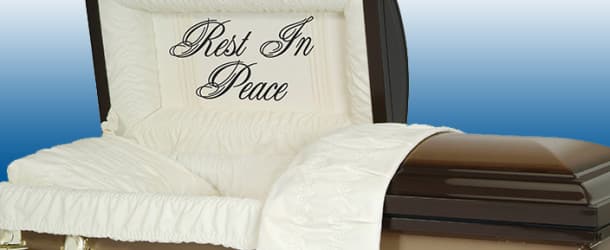
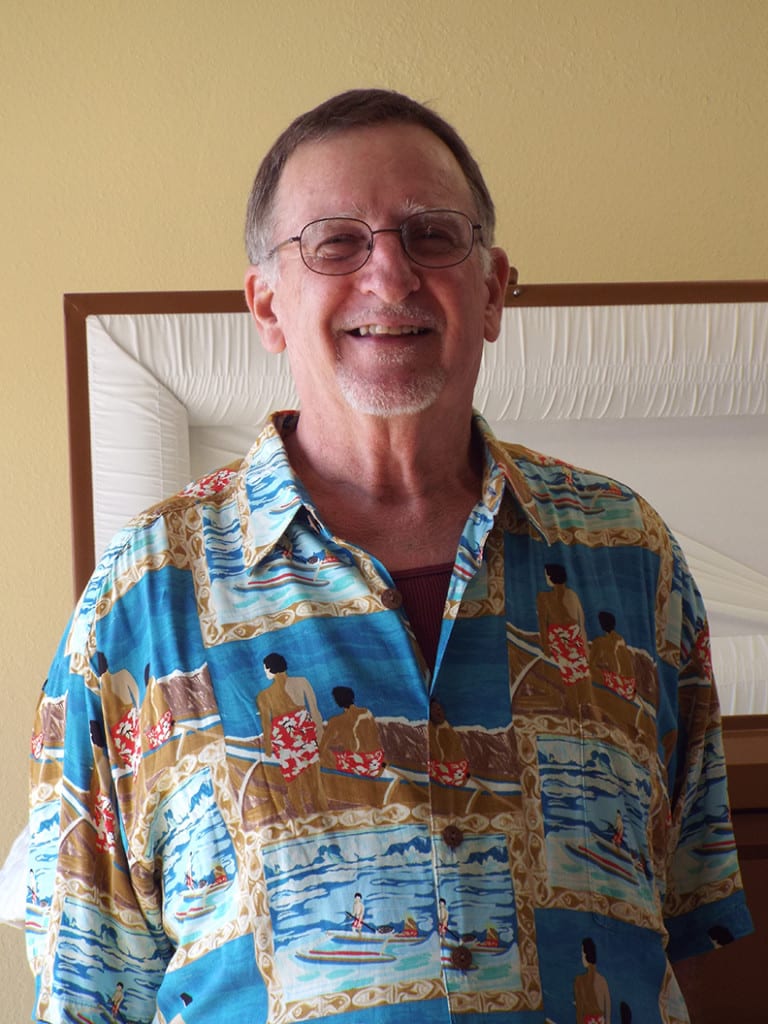












Comments are closed.